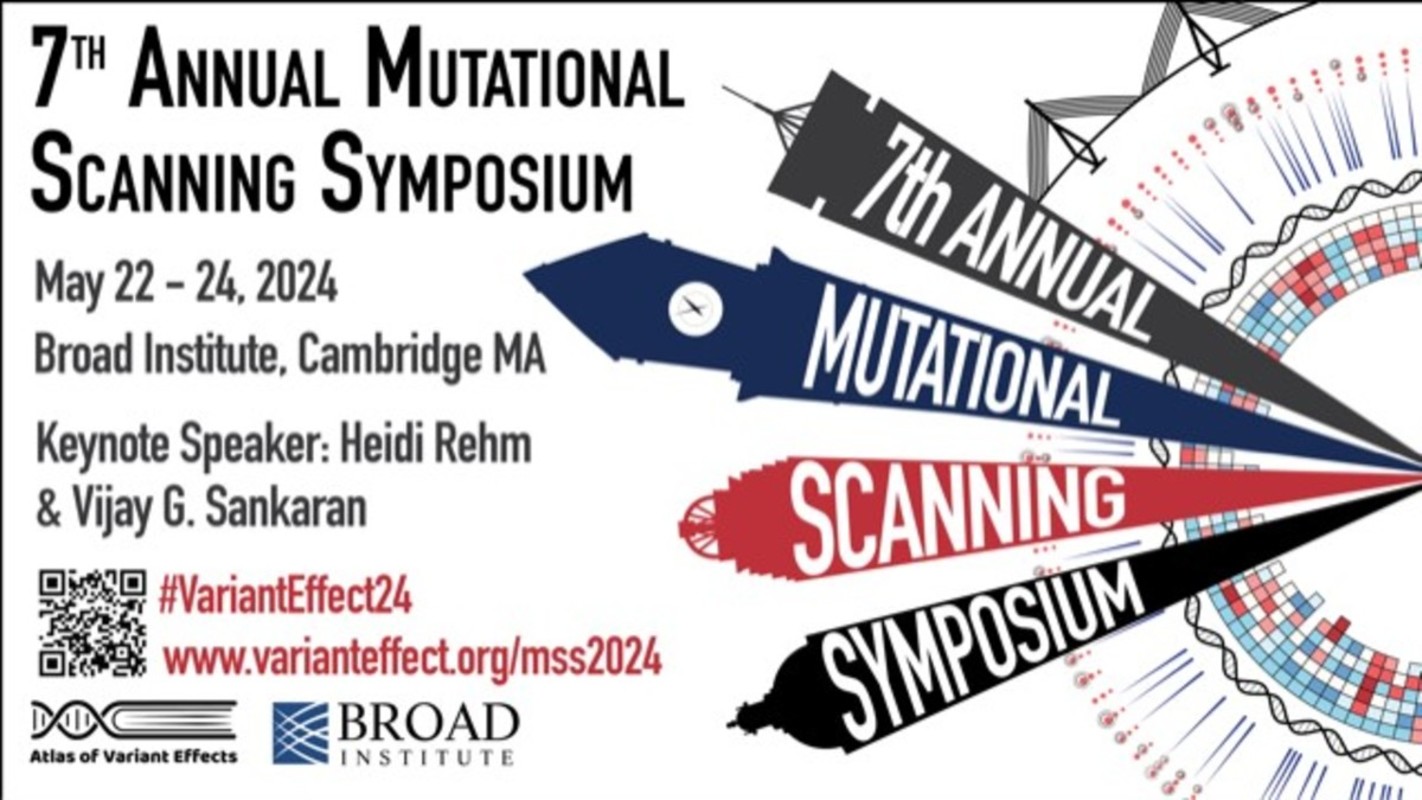
Experts in the fields of functional genomics, protein science, precision medicine, variant interpretation, and computational genetics will convene in Cambridge, Mass. May 22-24 for the seventh annual Mutational Scanning Symposium. Registration for the three-day event at the Broad Institute is now open. BBI is among the organizations sponsoring the meeting.
Dr. Doug Fowler, a professor of Genome Sciences and an adjunct associate professor of Bioengineering at the UW, has helped organize the six previous symposia.
“There is no other annual conference I look forward to more than this one,” said Fowler, who is the co-chair of the Executive Committee of the Atlas for Variant Effects Alliance. “This is an unparalleled opportunity to hear from renowned leaders on new trends in computational science, genomics, and precision medicine. I also look forward to the informal discussions with colleagues, sharing insights and exploring potential scientific collaborations.”
Fowler recently collaborated on a commentary with Dr. Heidi Rehm one of two keynote speakers at the symposium. She is human geneticist and genomic medicine researcher, as well as co-director of the Program in Medical and Population Genetics, at the Broad Institute.
Their commentary, “Will variants of uncertain significance still exist in 2030?” was published in January in the Journal of Human Genetics. Its provocative title and the authors’ engaging writing will likely be discussed and debated among the symposium’s participants.
In addition to Rehm, Dr. Vijay G. Sankaran will present the other keynote address. He is a researcher and physician affiliated with Boston Children's Hospital, the Dana-Farber Cancer Institute, and Harvard Medical School.
An agenda and more details on the symposium are forthcoming. Watch for new information at the websites for Atlas of Variant Effects Alliance or the Broad Institute.


